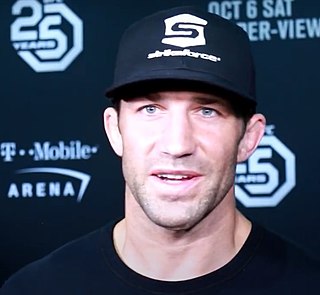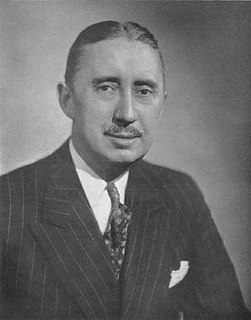A Quote by Luke Rockhold
To have the athletes weigh in on a stage, televised, it makes no sense. Holding us at weight to run us through medicals and a staging process, it lengthens the time we're depleting ourselves.
Related Quotes
The surest way to know our gold, is to look upon it and examine it in God's furnace, where he tries it that we may see what it is. If we have a mind to know whether a building stands strong or not, we must look upon it when the wind blows. If we would know whether a staff be strong, or a rotten, broken reed, we must observe it when it is leaned on and weight is borne upon it. If we would weigh ourselves justly we must weigh ourselves in God's scales that he makes use of to weigh us.
The flesh is what traps us, because no one has ever chosen his or her body to live in, has he? It's the flesh that makes us sick, that makes us old and that eventually ends up killing us. But at the same time, it's that glorious flesh that enables us to scratch heaven through sensuality, through passion. Paradoxically, the flesh that kills us will also make us feel eternal for a brief moment because that's what we are in passion, eternal - we abandon ourselves, we give ourselves to the other, so much that when we are loving passionately, death doesn't exist.
When the Pleiadians speak of letting go, they transmit a letting go energy through our energetic field. As a human being, we've been holding on for lifetimes, really holding on to the illusion strongly, holding on to the shame, the guilt, the sadness, all the things we've lived through, all the experiences we have allowed ourselves to create for ourselves in order to learn. We've held on to the pieces of us - the anger, the frustration and the pain.
Each one of us continues to carry the heart of each self we've ever been, at every stage along the way, and a chaos of everything good and rotten. And we have to carry this weight all alone, through each day that we live. We try to be as nice as we can to the people we love, but we alone support the weight of ourselves.
We'll choose knowledge no matter what, we'll maim ourselves in the process, we'll stick our hands into the flames for it if necessary. Curiosity is not our only motive; love or grief or despair or hatred is what drives us on. We'll spy relentlessly on the dead; we'll open their letters, we'll read their journals, we'll go through their trash, hoping for a hint, a final word, an explanation, from those who have deserted us--who've left us holding the bag, which is often a good deal emptier than we'd supposed.
The primary function of poetry, as of all the arts, is to make us more aware of ourselves and the world around us. I do not know if such increased awareness makes us more moral or more efficient. I hope not. I think it makes us more human, and I am quite certain it makes us more difficult to deceive.
Before His gaze all falsehood melts away. This encounter with Him, as it burns us, transforms and frees us, allowing us to become truly ourselves... His gaze, the touch of His heart heals us through an undeniably painful transformation "as through fire". But it is a blessed pain, in which the holy power of His love sears through us like a flame, enabling us to become totally ourselves and thus totally of God.
We forgive, if we are wise, not for the other person, but for ourselves. We forgive, not to erase a wrong, but to relieve the residue of the wrong that is alive within us. We forgive because it is less painful than holding on to resentment. We forgive because without it we condemn ourselves to repeating endlessly the very trauma or situation that hurt us so. We forgive because ultimately it is the smartest action to take on our own behalf. We forgive because it restores to us a sense of inner balance.
We were always in the shadows of the stuff that was getting more attention. So people learned to listen to us slowly over time. And, frankly, we learned how to listen to ourselves. It takes us a long time to write a song that we all really like, so it makes sense that it would take a while for the listener to get there, too.
We are learning all the time - about the world and about ourselves. We learn without knowing that we are learning and we learn without effort every moment of the day. We learn what is interesting to us... and we learn from what makes sense to us, because there is nothing to learn from what confuses us except that it is confusing.






































